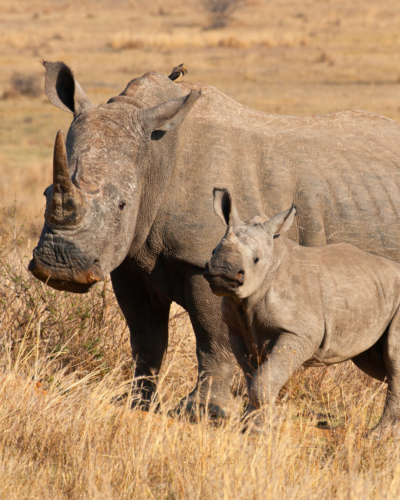
Every year on October 4th, the world comes together to celebrate World Animal Day—an occasion that plays a key role in promoting global animal protection. It’s a day that serves as a reminder of the importance of animals in our lives and encourages people to fight for a better world for species big and small.
Here are 7 ways you can join in the movement and support a better world for animals:
1. Cut Back on Single-Use Plastics
Every year, more than 300 million tons of plastic are produced, causing great suffering to our planet’s wildlife. Start small—try going plastic-free for a day, then build up to a week or even a month. Over time, bringing a reusable bag, bottle, or cutlery will become second nature, reducing the plastic pollution harming animals.
2. Take Climate Action for Wildlife
Taking climate action—such as minimizing food waste, eating fewer animal products, and washing laundry in cold water—can significantly benefit wildlife and their habitats. These small changes help maintain food and clean water sources for animals and support overall habitat vitality. For more climate-friendly actions that make a difference, visit TheEnvironmentExcuse.org.
3. Shop Responsibly When Traveling
When traveling or buying souvenirs, be mindful of products made from wildlife, like ivory, exotic animal skins, or items made from turtle shells. Purchasing these products fuels the illegal wildlife trade and puts pressure on vulnerable animal populations. Skip these items and choose souvenirs that celebrate culture without harming wildlife.
4. Transform Your Yard to Support Local Wildlife
Over 40 million acres in the U.S. now make up residential lawns and are no longer a functioning ecosystem that supports wildlife. Plant native plant species in your yard to conserve water and give birds and other wild animals food, shelter, and a place to raise families.
5. Protect Sharks—On Your Plate and in Your Pet’s Food
Say no to dishes that contain shark fins or meat. We conducted a DNA study of shark fin products sold across Thailand and found that 62% of identifiable fins belonged to shark species at risk of extinction—meaning consumers could be unknowingly eating endangered sharks.
This also applies to pet food: avoid brands with ambiguous ingredients like “ocean fish” or “whitefish,” which may include sharks, and instead look for specific, sustainable sources.
6. Turn Off the Lights
Unnatural light sources disrupt migration patterns, sleep cycles, habitat formation, and food sources necessary for the survival of birds, sea turtles, and other animals. Only use lighting when and where it is needed, properly shield all outdoor lights, keep your blinds drawn during the evening, and if safety is a concern, install motion detector lights and timers.
7. Support Marine Protected Areas
Marine Protected Areas (MPAs) are special zones designated by the government that protect delicate marine habitats and the species that live there. You can support your local MPA by visiting or volunteering. You can also help by giving to WildAid! We work across the world to make MPAs and other priority marine areas more effective by helping local partners enforce conservation rules and keep threats like illegal fishing at bay.
Stay in touch and get the latest WildAid updates.
SIGN UPAbout WildAid
WildAid is a non-profit organization with a mission to protect wildlife from illegal trade and other imminent threats. While most wildlife conservation groups focus on protecting animals from poaching, WildAid primarily works to reduce global consumption of wildlife products such as elephant ivory, rhino horn and shark fin soup. With an unrivaled portfolio of celebrity ambassadors and a global network of media partners, WildAid leverages more than $308 million in annual pro-bono media support with a simple message: When the Buying Stops, the Killing Can Too.
Journalists on deadline may email communications@wildaid.org